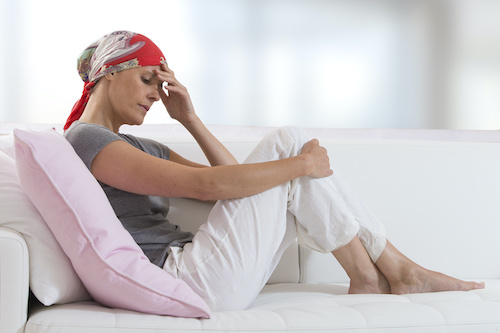
New Brunswick, N.J., December 1, 2021 – Fatigue, or constant feeling of tiredness, is very common in people with cancer. Cancer-related fatigue can be severe and last for a number of years post treatment. It can affect a patient physically, emotionally and mentally. Even routine daily activities, such as bathing, can become difficult, and it may be hard to meet the everyday needs of family, friends or work responsibilities. Andrew Kass, RN, MSN, AGNP-C, AOCNP, advanced practice nurse at Rutgers Cancer Institute of New Jersey, the state’s only NCI-designated Comprehensive Cancer Center together with RWJBarnabas Health, shares more about the impact of cancer related fatigue and ways to better manage it.
Understand the signs and symptoms of cancer fatigue. According to the American Cancer Society, between 80 percent and 100 percent of people with cancer report having fatigue. Fatigue felt by cancer patients is different from the fatigue of daily life or the tired feeling people without cancer might experience. While every patient experiences different symptoms at different levels, some include feeling sluggish, apathetic, tired, no motivation, exhausted, unable to think and lack of mental sharpness.
Talk to your health care providers. Your cancer care team needs to know how fatigue is affecting your life. When talking with your nurse or physician, it can be helpful to describe how your fatigue impacts your daily activities and routines so they can help you identify the cause(s) and how to manage it. Throughout treatment, your cancer care team can provide different levels of support and encouragement to you and your caregivers. For example, your fatigue may be related to anemia or low hormone levels. Periodic lab work may shed light on ways to improve fatigue (through transfusions or hormone supplements).
Take steps to manage your fatigue. Unlike regular fatigue, resting with cancer related fatigue may make you more tired. Prolonged rest can lead to further loss of physical strength and endurance. Choose fun activities that suit your health and fitness level such as yoga, walking or gardening. Low-to-moderate physical activity can help to increase your energy levels throughout the day. Make sure to consume an adequate amount of calories as well as drinking plenty of fluids. You may want to consider some tips to conserve energy. Plan ahead, schedule and prioritize activities based on your energy pattern. Maybe take on more strenuous activities in the morning when your energy level is greater. Make quick meals in the microwave rather than cooking. Have groceries delivered to the home instead of food shopping when you are feeling more tired.
We’re here to help you. The Patient Support Services program at Rutgers Cancer Institute, New Jersey’s only National Cancer Institute-designated Comprehensive Cancer Center together with RWJBarnabas Health can help you with issues such as navigating treatment side effects.
For journalists – contact:
Krista Didzbalis
Media Relations Assistant
732-507-8307
krista.didzbalis@rutgers.edu
For patient appointments/inquiries – contact:
844-CANCERNJ (844-226-2376)

